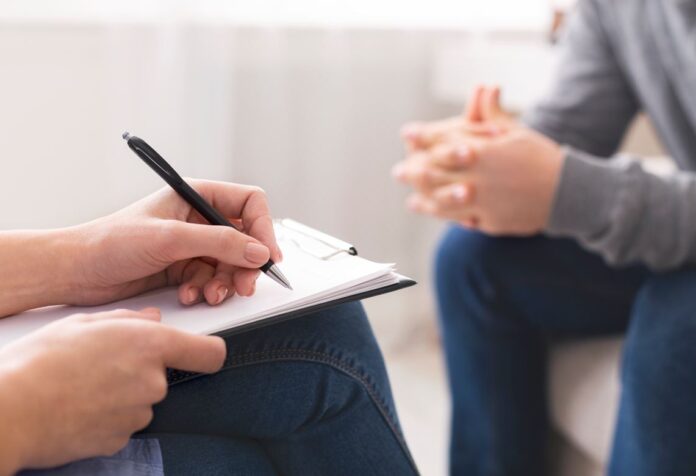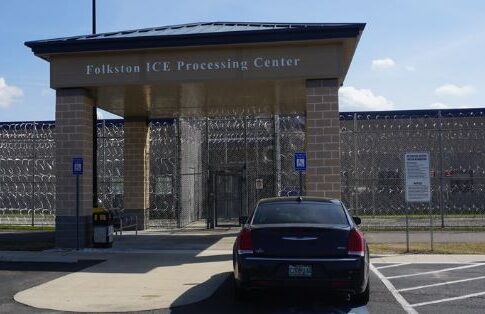By Julia Tong
As one of the few Chinese Americans in his New York City neighborhood, Ben Chan recalled facing “all kinds of discrimination” as he grew up. The microaggressions, systemic racism, and physical and verbal violence he experienced began in elementary school, lasting all the way through college and beyond.
These experiences left a deep impression on him. Yet he had no idea this wasn’t normal, and how much it affected him, until he found the right therapist to process his trauma.
“A lot of these experiences I didn’t really have a place to talk about, or anybody really to talk to about,” says Chan to AsAmNews. “It’s really in the last few years that I’ve been working with a therapist that specializes in racial trauma that I’ve been unpacking these things.”
For Chan, and many other Asian Americans nationwide, culturally competent therapists are critical for mental healthcare. Yet these therapists remain difficult to find. As more Asian Americans reach out for mental health treatment, this lack of therapists is a block to getting the help they need.
LATEST STORIES
Shortage of Asian American therapists
There is a nationwide shortage of therapists that serve the Asian American community. In 2021, less than 4% of psychologists identified as Asian American or Asian Pacific American, compared with 80% who identified as White. On top of that, not all of those psychologists are trained in culturally competent care.
As a result, it can be especially difficult for Asian Americans to find the right psychologist. For Chan, finding a therapist who could treat racial trauma was a difficult process. Despite being NYC based, he ultimately ended up connecting to a therapist in Florida via telehealth.
“It took a while. I had to talk to several different therapists before I found somebody that was a fit,” said Chan.
One major obstacle is a lack of cultural humility by mental healthcare providers. Many Asian American patients report having to teach therapists about their culture, or being judged or questioned about their experiences. This may discourage patients from continuing to seek help.
Irene Lee is a mental health advocate who has helped many Asian American peers seek mental healthcare. Finding the right therapist can be a challenging process, she says. The fact that many Asian Americans lack trusted people who can recommend good therapists makes the process even more isolating
“Finding someone who’s the right fit for you is really important,” says Lee to AsAmNews. “I can really understand why after the process of reaching out and trying to get help, it would feel really discouraging to not have a good experience with it.”
Asian Americans who do not speak proficient English, such as refugees or immigrants, face additional obstacles. Simply finding an in-language therapist is a challenge. And beyond that, navigating the notoriously convoluted American insurance and healthcare system can make accessing care nearly impossible.
Dr. Catherine Vuky is a psychologist at South Cove Community Health Center, a multilingual AAPI clinic in Boston, MA. She says her therapeutic work is guided by her own background as a refugee from Vietnam: After arriving in 1975, Vuky helped her parents navigate US society as she grew up.
“These parents are a reflection of my parents coming over here,” says Vuky. “We were the translators for them, we helped them navigate the system. And so I see how much they struggled… and I’m giving back right now to the community.”
In appointments, Vuky combines case management– such as making calls, setting up appointments, or reading emails and letters– with in-language therapy. She says that doing so has been crucial in building trust with her patients, who often carry significant trauma from wartime or immigration experience.
In one instance, Vuky recalls treating a patient who had been imprisoned in a prison camp. Those appointments mostly centered around case management, as the patient could not speak about his experiences for more than a few minutes. Still, Vuky built enough trust that he slowly told his life story to her over years of treatment– including events he had not even been able to tell his wife and children.
“He said to me, when I die, I would like for you to share my history with my children,” Vuky says. “This is how much my patients trust me with their information.”
Finding more therapists to serve the Asian American community
On the professional side, efforts are underway to train more psychologists to serve the Asian American community.
Vuky leads the Asian Mental Health Concentration at William James College in Boston, MA. The concentration was instituted in 2020, and aims to train psychologists to provide culturally competent care for AAPI patients.
This training includes evidence-based practices such as adapting manuals for Asian American families, learning to clinically work with different Asian groups, and conducting research into Asian American mental health. Aside from psychology, the curriculum also includes AAPI culture and history: Students attend local and international immersion programs, and learn about the history of Asian Americans in the US as context for their practice.
To address the disparities in Asian American psychologists, William James also conducts outreach to draw students towards the field. One of the College’s recent initiatives is the Asian Mental Health Fair. Hosted on November 18th, the fair drew over 60 middle and high schoolers in Massachusetts for panels, presentations, and networking events.
The Asian Mental Health Fair is, to Vuky’s knowledge, the first of its kind in the US. However, Vuky stresses that the fair’s goal was not only to educate students, but to destigmatize mental healthcare for their parents as well.
Parents, Vuky says, often have reservations about their children entering the mental healthcare field. Many are concerned about low pay, on top of the social stigma around mental health and a lack of understanding of what being a psychologist entails.
“Psychology is a field that most parents do not want our children to go into,” she says. “And so I really started to think, how do we start to change that thinking, and we really need to target the parents.”
As such, the Fair also provided in-language information about mental health, translated into 7 different languages. It also screened videos of interviews with Asian American parents discussing their child’s psychology career path that William James had produced.
The personal dimension of videos has already had an especially high impact, Vuky says. After the videos were made in 2021, Vuky was approached by a student whose parents were not supportive of her entering psychology. Vuky sent the student the video to show her parents.
“Later on this year, the woman started to train at South Cove, and we hire[d her] as a case manager,” Vuky says. “She told me that after the conversation, she showed her parents my video, and it started to turn their minds about mental health.”
Trust is a key for patients
A common trope is that Asian Americans do not seek mental healthcare. But Vuky says this is not necessarily true: Since 2020, her list of patients has doubled. The trust she built with her patients led many other Vietnamese Americans in the local community to reach out.
Culturally-informed care, she observes, has been key to driving many Asian Americans to reach out for therapy.
“It’s by word of mouth– if they trust you and they feel like you have their best interests at heart,” she says.
In short, with the right care, Asian Americans do seek help. And a key aspect to encouraging them to do so is chipping away at misconceptions about therapy, says Lee.
Per Lee, simply being open about seeking therapy, and treating it as a normal part of life, can be powerfully destigmatizing. At the Asian Mental Health Career Fair, she spoke as a patient testimonial, in hopes that this transparency will help contribute to that process of normalizing mental health treatment in the AAPI community.
“Part of my hope was if people hear me share my story, if they need to bring me to another space, they know that I’m willing,” she says.
“Hopefully we can keep building the wave of destigmatization.”
AsAmNews is published by the non-profit, Asian American Media Inc. Please take advantage of a $30,000 matching grant challenge. An anonymous donor has offered to match dollar for dollar every tax-deductible donation made to Asian American Media Inc from November 1, 2023 until the end of the year. The money will be used to fund the addition of a new reporter and to produce content for limited English-speaking Asian immigrants. We are supported in part by funding provided by the State of California, administered by the California State Library in partnership with the California Department of Social Services and the California Commission on Asian and Pacific Islander American Affairs as part of the Stop the Hate program. To report a hate incident or hate crime and get support, go to CA vs Hate.









I have been a psychotherapist for over 40 years, now retired. But California has been fortunate to have had Asian therapists leading the cause for proficient cultural responses for Asian American clients Much literature has been written about it in California. Perhaps you can do an article on how California led the way for cultural sensitive therapy.